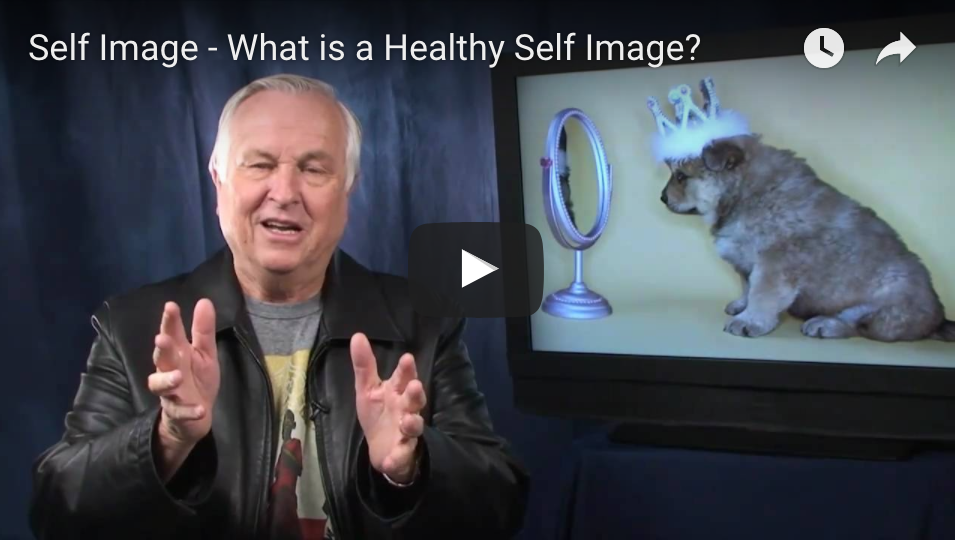
Last week in our series exploring our true identity we talked about how our parent’s view of us deeply impacted our self-portrait as we grew up. This week, let’s look at three influences outside the home that may have amplified the negative messaging we heard at home—or, conversely, overrode the God-based confidence our parents tried to instill in us.
These influences are school, secular society, and church. School can be very challenging for Christian kids, as cultural tolerance has become increasingly pervasive. And not all Christians churches teach sound theology. Rather than empowering people to fully live in God’s amazing grace, they enslave people with the chains of performance-based salvation and legalism.
Influences: Our School Experience
Kids can be decidedly cruel to each other. They have the ability of discovering and magnifying any tiny fault or blemish, and blowing it into a major issue. Every snub, every unkind remark, every joke you were the brunt of in school added another negative nick to your self-view, likely causing you to doubt your intrinsic self-value.
Why did what our classmates and teachers thought of us matter so much?
My friend Terri wishes she’d had a completely different school experience. An introvert by nature, Terri hated the first day of school. But also the second day, and the third day — and any other day that offered up the slightest chance that she might be called upon to speak in class. When her teachers assigned an oral report, Terri was so anxious she could barely speak.
Terri’s fear? That her teachers and classmates would think her incredibly stupid. Where did she learn to hold this expectation? From her mom, who often paraded what she thought were Terri’s inadequacies in front of Terri’s younger siblings.
Because of Terri’s assumption that others also saw her as incompetent, she was super sensitive to any teasing she received at school. As an adult, Terri still makes decisions based on how smart she thinks others think she is. When Terri feels that she can trust those around her, her natural abilities shine. But put her around loud extroverts, or people who have fancy titles or important jobs, and Terri loses all confidence. In effect, Terri’s view of her self-worth is always in flux.
Gals, it is only when we become confident in God’s unceasing affection, care, and view of us that we can stop allowing the barbs and opinions of others to wound us. Are you there yet? Or are you still limping, even at your twentieth high school reunion, from the arrows that your teachers and fellow students shot at you?
Influences: Our Secular Culture
In large part thanks to television — and now the web — it’s almost impossible to quiet the negative messaging that is trying to get inside our heads 24/7. Through the secular and negative messaging that our media churns out non-stop, we are being manipulated to conform to what our society says is “truth.” The lies of cultural tolerance entice us to not only disregard God’s truth, but to believe that God is a myth. If He is real, they add, He certainly doesn’t care about you.
Only a generation or two ago, it was our family environment that formed our belief and value statements. Television programming used to shut off in the late evening, and the screen would turn to static. We weren’t bombarded with crappy programming like we are today around the clock. And as the Internet hadn’t been invented yet, most youth grew up somewhat sheltered from immorality, pornography, violence, and secularism. Today, the media dumps all of it into our living rooms, family rooms, and bedrooms. We now have to fight to keep these negative influences at bay.
Anything you want to expose yourself to — good and bad — is now accessible with a few clicks of the mouse.
It’s super easy to accidentally step into chat rooms and web sites that entice us to participate in activities that we know don’t please God. Pornography has become a huge addiction not only in our society, but around the world.
Even in Christian homes where parents monitor TV and internet access, most sitcoms, dramas, movies, and educational programs present a secular worldview. It is now typical to see couples having sex on a first date, even in programming aimed at pre-teens. Too, secular programming typically portrays parents as dimwits, and children as blatantly disrespecting authority.
Even most mainstream songs now contain lyrics that celebrate promiscuity, if not also devalue women. And social media creates pop icons out of people who do their best to be vulgar and anti-God.
Many of us have accepted this secular viewpoint as “normal.” But we have to remember that the way culture sees us is miles apart from how God sees us. Our culture glorifies the opinionated loudmouths, the physically beautiful, the gifted athletes who can best dribble or swing a bat. We often regard people with the biggest salaries and biggest houses as “having it all.” But if they don’t know Jesus, they truly miss out.
What messages have you bought as “truth” as you’ve watched these people gain the world’s frenzied adoration?
I think of my friend “Celeste” as I ask this. Now a twenty-eight-year-old accountant, Celeste has spent years being indoctrinated by the media. She watched cartoons by the hour as a child, sitcoms and dramas as a teen, and soap operas and “mature” videos as a young adult. Celeste also ingested hour upon hour of commercial advertising.
While she did attend church and professed to be a Christian, Celeste allocated very little time to cultivate a devotion life. She was too busy watching TV! Celeste knew of God, but she didn’t know God, because she gave Him so little time to build a relationship. Because she didn’t have a clear view of how valuable Christ sees her, Celeste formed her self-image from the messaging advertisers spent millions to spew at her.
By her early teens, Celeste “got” the message that her overweight body would ensure she would never be attractive by societal standards. Like Terry, Celeste has decided that she is unattractive — and unlovable. Celeste struggles to believe that God loves her. She chooses to distance herself from Him, because His love seems too good to be true.
Like the sun’s ultraviolet rays that burn our skin, cultural messaging can burn us bad. If we don’t fight off the rays (Jesus sunblock, anyone? SPF unlimited!), we invite culture to dictate our worth.
Influences: Our Religious Experience
Perhaps your church taught you that God is more of an energy force than a person; not someone you can have a real relationship with. Or that He created the world, but then took a hands-off approach, leaving us to try to muscle through the muck ourselves. Or maybe you were taught that God likes you ONLY when you’re perfect; but screw up, and His punishment will be painful and swift. That only through your good performance can you earn God’s good grace. So NOT true!
As a teen Janet rebelled against her church, her Christian family, and the God whom she assumed has little use for an imperfect person like herself. Because of her church’s relentless focus on Christian obedience and righteousness, Janet didn’t get to learn about God’s compassion, forgiveness, and unconditional love. Janet saw herself in the hands of an angry God; desperate to please Him, but always failing to measure up.
Now in her forties, Janet still fights believing that God offers her unconditional grace. Any Christian taught to embrace legalism can struggle with developing a relationship of trust and love for God. Convinced that we simply can’t measure up, we simply can’t accept that grace and forgiveness are free and always available.
One of my favorite Bible verses speaks to the fact that nothing can EVER separate us from God’s unconditional love: Ephesians 3:17-19: “And I pray that you, being rooted and established in love, may have power, together with all the Lord’s holy people, to grasp how wide and long and high and deep is the love of Christ, and to know this love that surpasses knowledge that you may be filled to the measure of all the fullness of God.”
Our 12-Week Journey About Our True Personal Identity!
Part of rightly understanding our true identity requires that we know how God really sees us. As our loving creator, God says two things to us: “You are my child,” and “You are chosen.” Do you sense God’s heart toward you? Can you wrap you mind around the truth that God was thinking about you before He even created the world?
Let that truth sink into the depth of your heart and mind. It may take a lot of determination on your part, but as you begin to realize just how valuable you are in God’s eyes, you will be able to break the chains that keep you from accepting and loving yourself.
During this 12-week series, we’ll post about personal identity. Each post will include a song to remind us of the truth of how God sees us. Let’s start with Flawless by MercyMe. MercyMe has it exactly right: The cross has made YOU flawless in God’s eyes!
This blog series is based on Josh’s book See Yourself as God Sees You. It is our prayer that during this series you come to recognize and accept your true personal identity! God couldn’t love you more!














